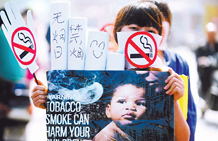
Modernization of Chinese medicine to contribute to human health
Source: Xinhua
Updated: 2015-06-10
MILAN, June 7 (Xinhua) -- In a globalized world facing common health challenges, the traditional Chinese medicine (TCM) will contribute to the progress of medical sciences, Chinese and Western medical experts agreed here Sunday.
"Medicine and food come from the same source. Nature provides us with food as well as medicine to protect us from diseases and strengthen our body," Yan Xijun, founder of the Tasly Holding Group and deputy director of China's Association of Chinese Medicine, said at the "2015 International Forum on Great Health Industry Development" in the Italian city of Milan, which is hosting the current world expo now.
The TCM is a tremendous culture treasure showing the process and experience of Chinese people fighting against diseases from some 3,000 years ago, Yan said at the forum that attracted leading medical experts from China, Europe and the United States.
The theory of TCM advocates that human bodies should always be kept in harmony, while treating diseases on the basis of the theories of "Yin and Yang" and "Five Elements" -- wood, fire, earth, metal and water as well as the Etiological Theory, using natural herbs, animals and mineral resources for curing diseases, he explained.
As food safety, health and related issues become more and more important in the global society, the TCM modernization will contribute more to creating a solid health supporting system for people all over the world, Yan said.
"The ancient TCM should be combined with modern medical science while we follow the pattern and characteristics of the TCM, for the purpose of developing innovative new drugs," Yan stressed.
Challenges facing both China and Western countries, such as population aging, are further toughening the need for both the TCM and Western medicines to give full play to their synergy, said Wang Peiyu, deputy director of the School of Public Health under the Peking University Health Science Center.
Major health issues like environment pollution and health system reform have affected China in recent years, while chronic diseases have been continuously increasing over the past 30 years, Wang noted.
"We have to use the ideas and methods of epidemiology, health education and promotion, nutrition and clinical medicine to predict, assess and control health risk factors," he said.
All of these challenges can be overcome through the cooperation between the TCM and Western medicine, said Rudolf Bauer, a professor of pharmacognosy and head of the Institute of Pharmaceutical Sciences at the University of Graz, Austria.
"To my understanding, the modernization of the traditional Chinese medicine means to prepare it to be accepted by the conventional medicine. And to be accepted by conventional medicine, I think it is very clear what we need. We need evidence on efficacy, we need evidence on quality, and we need evidence on safety, these are the three major issues we have to address," he said.
"We have to read books carefully and to get the ideas and advices from the traditional use, but then we have to transform them into modern ideas, or into modern science," Bauer said.
"For example, I think the Chinese concept of Yin and Yang is very solid, but is nothing we can measure in a pharmacological way. We have to analyze the physiological effects on our body, and they may finally explain Yin and Yang," he said.
A correct understanding of the TCM can only be achieved by close collaboration with Chinese partners, and that is why Bauer has established a consortium, known as the GP-TCM Research Association and supported by the European Union, to bring Chinese and European scientists together for joint research.
"My vision is to really have some kind of integrated medicine, which means you will be able to use both Western and Chinese medicines in the future on the only basis of which type of treatment is the best one for each single patient," the professor emphasized.

World Family Summit
The World Family Organization was founded in Europe in 1947 and headquartered in Paris.
Link: China's Central Government / World Health Organization / United Nations Population Fund / UNICEF in China
Copyright 2014 National Health and Family Planning Commission of the PRC All rights reserved






